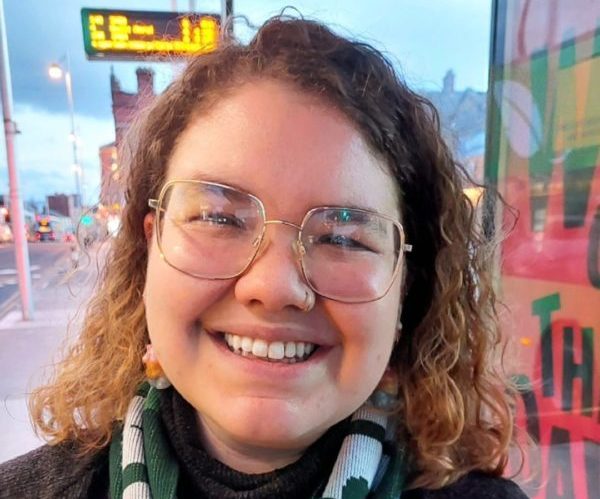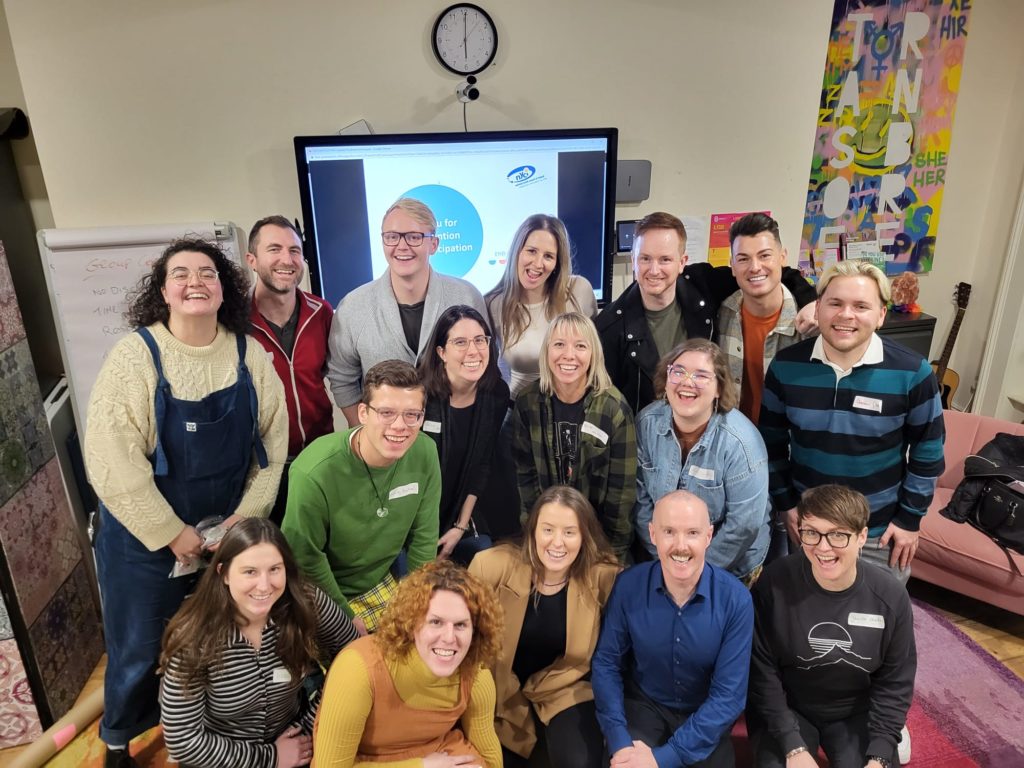Our team is supported by amazing volunteers whose contribution spans across the organisation.
Most of our volunteers work directly in our peer-led youth groups with LGBTQ+ young people alongside our professional youth work staff. Other roles undertaken by volunteers include supporting our fundraising and governance through various subcommittees and working groups.
“
“Volunteering with Belong To means the world – this service is such a strong force for positivity, and I’m honored to be a part of it. The young people make my life brighter, and I’m so thankful to have them in my life.”
– Maggie McAlister (she/her), Belong To Volunteer

Volunteering with Belong To is a great way to meet new people, develop your skill set, have fun, and contribute to making Ireland a place where all LGBTQ+ young people are equal, safe and thriving.
Volunteers are supported through an induction process and ongoing group supervision. If you are interested in volunteering with us, fill out the form below and we will be in touch.
